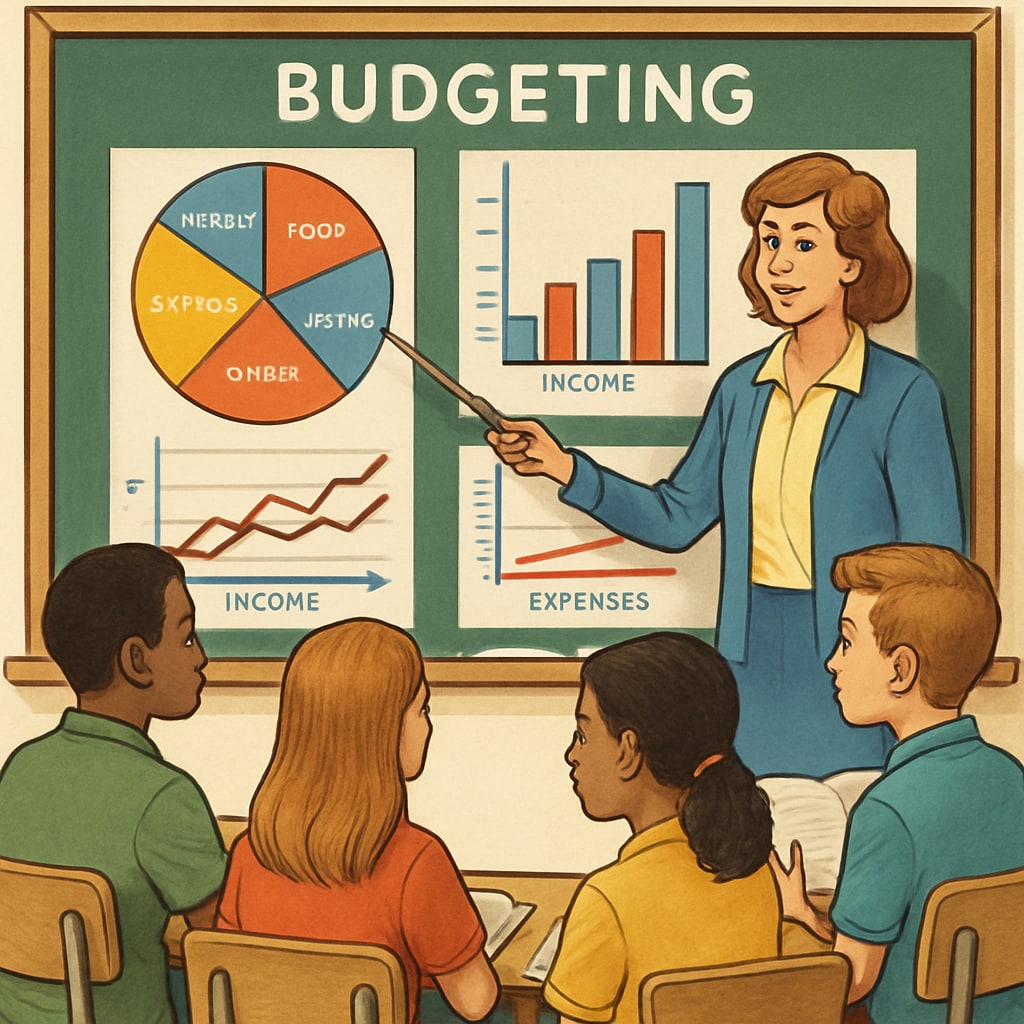In today’s world, the importance of financial education, time management, and school curricula cannot be underestimated. While schools emphasize academic knowledge in subjects like math, science, and literature, they often overlook teaching students essential life skills that will shape their future success. Financial literacy and time management are two critical abilities that can empower students to navigate adulthood effectively. This article examines why these skills deserve a central place in K12 school curricula and how they can prepare young learners for lifelong success.
The Case for Financial Literacy in Schools
Financial literacy—the ability to understand and effectively manage personal finances—is a cornerstone of adult independence. Yet, many adults struggle with budgeting, saving, and investing because they were never taught these skills during their formative years. According to a report on financial literacy, individuals who lack financial education are more likely to experience debt-related stress and financial instability.
Integrating financial education into school curricula can address this gap by teaching students how to develop budgets, understand credit, and make informed investment decisions. For example, lessons on compound interest and savings can help students appreciate the long-term benefits of starting early. Additionally, understanding the consequences of debt and loans can prepare them to make smarter financial choices in college and beyond.
- Teach budgeting skills to instill financial discipline.
- Introduce concepts like interest rates and credit scores.
- Encourage saving and investment habits at an early age.

Why Time Management Matters for Students
Time management is another vital skill that is often overlooked in traditional education. The ability to prioritize tasks and allocate time effectively is crucial for academic, professional, and personal success. Yet, many students graduate without mastering these essential techniques, leading to stress and inefficiency in adulthood.
Structured lessons on time management can provide students with practical tools to balance schoolwork, extracurricular activities, and personal interests. For example, teaching them how to use planners or digital scheduling tools can help them organize their responsibilities more effectively. Furthermore, understanding concepts like “time blocking” or “goal setting” can empower students to focus on long-term achievements while managing short-term deadlines.
Incorporating these lessons into the curriculum not only enhances students’ productivity but also equips them with the resilience needed to handle multiple responsibilities in adulthood.

Integrating Financial and Time Management Skills into K12 Curriculum
To make financial and time management education effective, schools need a systematic approach. First, these subjects should be treated as core components of the curriculum, not optional electives. Second, lessons should be age-appropriate, with concepts evolving from basic to advanced as students progress through grade levels. For instance:
- Elementary School: Introduce basic saving habits and simple time management techniques like creating to-do lists.
- Middle School: Teach budgeting, the importance of deadlines, and goal-setting strategies.
- High School: Focus on advanced topics like investment strategies, understanding credit, and managing long-term projects.
Engaging teaching methods, such as interactive simulations, case studies, and real-world scenarios, can make these lessons more impactful. For example, a budgeting simulation where students plan expenses for a hypothetical monthly income can illustrate the importance of financial planning.
The Long-Term Benefits of Early Education in Life Skills
Integrating financial and time management education into school curricula has transformative benefits. Students equipped with these skills are more likely to lead financially secure and organized lives. They are better prepared to handle challenges such as college debt, career stress, and personal responsibilities. Moreover, these lessons foster critical thinking and decision-making abilities, which are invaluable in every aspect of life.
As a result, schools that prioritize these subjects contribute to the overall well-being of their students, ensuring they are prepared not just academically but also practically for the demands of adulthood.
In conclusion, embedding financial literacy and time management into K12 education is not just an option—it is a necessity. By equipping young learners with these essential life skills, schools can pave the way for a generation of financially independent and organized individuals.


